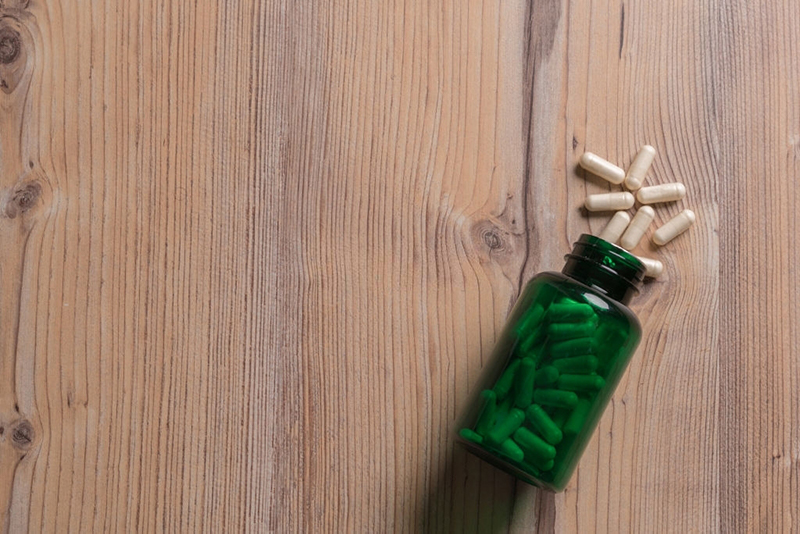Your body, particularly your large intestine, is home to trillions of microorganisms. The gut microbiota is a colonic bacterial community that has a role in immunological health, digestion, and other bodily functions. probioticseverything.com probiotic quality
Some of these bacteria cause disease, while others combat it, and a healthy mix of good and bad bacteria is essential for optimal health. When this equilibrium is disrupted, issues arise. Probiotics can help in this situation. probioticseverything.com probiotic quality
Probiotics are helpful microorganisms that are identical to those found naturally in the body. A greater variety of probiotic bacterial strains can be found in the numerous probiotic supplements available on the market. To reap the benefits, you must select the best option for your specific condition. probioticseverything.com probiotic quality
“A probiotic can help if someone’s gut microbial equilibrium has been disrupted,” says Gail Cresci, PhD, RD, an intestinal microbe specialist from Cleveland Clinic’s Department of Gastroenterology, Hepatology, and Nutrition. “But the key questions are whether it’ll actually help and whether you’re taking the proper path.” probioticseverything.com probiotic quality
A primer on probiotics
An imbalance in the gut microbiota is thought to play a role in a variety of health conditions, including gastrointestinal difficulties, immunological dysfunction, and infections. Medical problems, emotional and physical stress, and, most notably, antibiotic use, which destroys both good and bad bacteria, can all alter the bacterial balance. probioticseverything.com probiotic quality
Probiotics help to restore the balance of healthy bacteria in the gut. If you have irritable bowel syndrome (IBS), ulcerative colitis, acute infectious diarrhea, or diarrhea caused by antibiotics or Clostridium difficile (C.diff) infection, they may be able to help. They can also improve your immunity, combat inflammation, and possibly lower your cholesterol.
Choosing the Right Probiotic
A product must include live and active bacterial cultures to be considered a real probiotic, and this should be stated on the box. probioticseverything.com probiotic quality
Choose probiotics that have at least 1 billion colony forming units and contain the Lactobacillus, Bifidobacterium, or Saccharomyces boulardii genera, which are some of the most investigated probiotics. However, because each species of bacteria contains multiple strains that yield diverse effects, you may need to go a little deeper. probioticseverything.com probiotic quality
Dr. Cresci says that yogurt is prepared with two “starter” bacterial cultures — Streptococcus thermophilus and Lactobacillus bulgaricus — but these bacteria are frequently killed by stomach acid and give no benefit. However, some firms add extra bacteria to their products, so read the labels and choose items that have bacteria added to the starter cultures, she says.
Dr. Cresci adds, “I’d definitely avoid retail brands and pay a bit more for the name brand that’s been examined.” “Look for a product that has been tested for whatever issue you’re trying to solve.” You wouldn’t take the same product if you were on antibiotics, even if it claimed to help with IBS. You’d want a product that boosts your immunity. Many folks become perplexed at this point.” probioticseverything.com probiotic quality
Some people prefer probiotic supplements to probiotic foods, but according to Dr. Cresci, probiotic foods are the best option. Fermented foods, in particular, such as yogurt, kefir (a yogurt-like beverage), kombucha (fermented black tea), sauerkraut (refrigerated, not shelf-stable), kimchi (made from fermented cabbage), tempeh, and miso (made from fermented soybeans), provide a nourishing environment in which beneficial bacteria thrive and release an important byproduct: short-chain fatty acids. probioticseverything.com
“They have anti-inflammatory, anti-cholesterol, and anti-immunity properties,” she says. “Start with foods, but supplements can fill in gaps, such as if you require a certain strain of bacteria that isn’t found in a food source.”
Give your germs something to eat.
The probiotic sector is flourishing, yet probiotic products’ advantages and the amount of viable bacteria they contain can differ. Instead of eating bacteria from a supplement, Dr. Cresci recommends consuming prebiotics, such as fermentable fiber, which boost your own beneficial bacteria. Dried beans and other legumes, garlic, asparagus, onions, leeks, some artichokes, green bananas, and wheat are all good sources of prebiotics. Prebiotic supplements are also available.
Dr. Cresci explains, “What bacteria like is fermentable fiber.” “If you consume a balanced diet, I don’t think you need a probiotic.” It’s really your diet and including prebiotics if you want to adopt a one-size-fits-all approach to improving your gut health. What we eat has the greatest impact on our gut microbiome.”
How to Begin Using Probiotics
Do you think you’d like to try probiotics? Here are some key takeaways from Dr. Cresci to help you get through them:
Probiotics are generally considered harmless, but they’re not recommended if your immune system is already impaired. Consult your doctor to see if probiotics are good for you.
Finding a probiotic that works for you may take some trial and error. If you don’t see any results after a few weeks with one product, try a another one with a different bacteria strain.
Bloating and gas, as well as changes in your stool patterns, are all signs that the probiotic is functioning, according to Dr. Cresci.
Prebiotic meals promote the growth of beneficial bacteria in your gut. Include fermentable fiber sources such as beans, asparagus, onions, green bananas, and other legumes in your diet.

